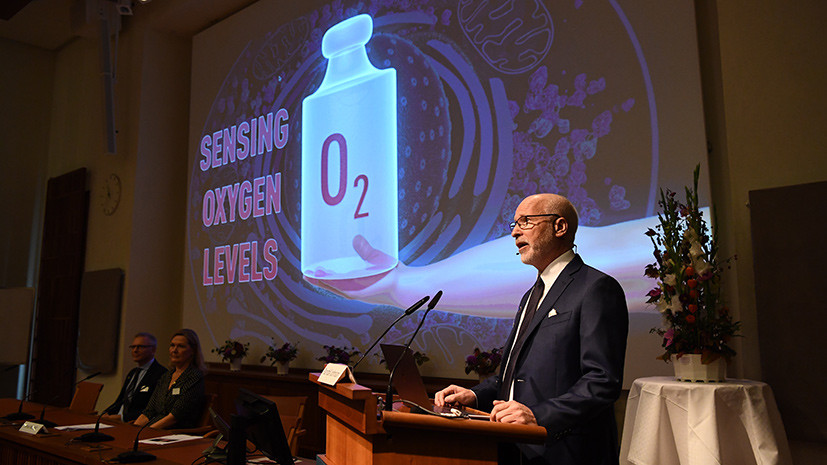The Carolina Institute in Stockholm named the winners of the Nobel Prize in medicine and physiology. In 2019, three oncologists and microbiologists will receive the award: Harvard Professor William Kelin Jr. from Howard Hughes Medical Institute (Boston, USA), Oxford Professor Sir Peter Ratcliffe (Great Britain) and Professor Gregg Semenza from Johns Hopkins University (Baltimore, USA) . A scientific prize was awarded to them for studying the mechanism of cell sensitivity to oxygen and their adaptation to changes in its level.
- From left to right: William Kelin (USA), Sir Peter Ratcliffe (Great Britain) and Gregg Semenets (USA)
- © NobelPrize.org
Despite the fact that oxygen is involved in all metabolic processes of the body, previously the science did not know the molecular mechanism that saturates the cells with oxygen at the genetic level and regulates their activity. Nobel laureates came to understand this process independently of each other while studying various physiological functions of cells.
So, Gregg Semenets investigated the gene of the hormone erythropoietin, which during hypoxia (lack of oxygen) is secreted by the body to saturate cells with oxygen. At the same time, Briton Sir Peter Ratcliffe also studied the relationship between the activity of this hormone and oxygen levels. As a result, both scientists found that erythropoietin is secreted not only by the kidneys, but also actively produced by all body cells during oxygen starvation. Professor Semenets also managed to identify the protein complex HIF (hypoxia inducing factor), which provided the production of this hormone. In turn, the third laureate, William Kelin, discovered a protein - a kind of marker that “marked” the excess HIF to be destroyed when hypoxia receded.
- Member of the Nobel Committee Randall Johnson announces winners at a press conference at the Carolina Institute
- © Jonathan NACKSTRAND / AFP
Like all works awarded the Nobel Prize in medicine and physiology in past years, this study, in addition to its fundamental significance, opens up possibilities for practical application. Thanks to the discovery, scientists not only revealed the principles of work related to hypoxia of biochemical processes, but also received a scientific basis for the development of new ways to combat anemia, diseases associated with cancer, and other pathologies.
As noted by members of the Nobel Committee, the laureates were so happy with their victory that "they even lost the power of speech."
Recall that the premium is 9 million Swedish kronor (about $ 918 thousand). The announcement of the laureates in medicine opened the so-called “Nobel week”, during which the laureates in other fields of science will be named. The award will be traditionally presented on December 10 - the day of memory of the Swedish inventor Alfred Nobel. In the field of medicine and physiology, "Nobel" has been awarded for more than a century. 115 years ago, in this nomination, the award was received by the famous Russian scientist Ivan Pavlov.

